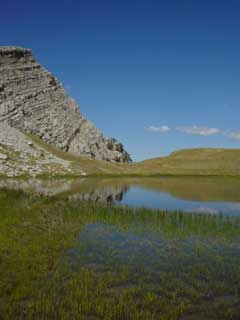 Jordan: Should we drink from Disi Water?
Jordan: Should we drink from Disi Water?
One of Jordan’s most ambitious strategic developmental projects has been actually achieved. After years of ups and downs on a bumpy financial and administrative road the Disi water conveyor project is functional now supplying Amman and the middle area with 100 MCM of water each year.
In Jordan there is always a reason to feel alarmed, worried and skeptical about every project. Whether this is justified or not remains to be proven. For the Disi project there is a huge shadow of doubt that has emerged since 2009 when a scientific study published by Duke University reached a frightening conclusion that the water of the Disi aquifer contain very high levels of radioactivity that is detrimental to human health and may cause many health effects including the “C” disease. Although all fossil water aquifers in the world contain various levels of radioactivity the one in Disi, according to the study is highly dangerous in its content.
The study, wired throughout the world by Reuters caused panic in Jordan. The Ministry of Water and Irrigation did not help at that time by pointing accusation fingers at the fact that the main author of the study was an Israeli academic, who was assisted by a prominent Jordanian expert and other American researchers.
The study occupied the psyche of the people in Jordan and almost all media outlets. No one cared to question the methodology which used sampling from a few wells in an area that has not been used for either drinking or agricultural purposes in the last decade. Moreover, Disi water has been used for drinking purposes in Aqaba since 30 years. Currently, Aqaba has the second lowest rate of cancer incident among Jordanian governorates (40 cases per 100,000 population) according to the National Cancer Registry for 2010. Obviously, Disi water has not caused a Cancer epidemic in Aqaba.
According to information I received from 4 trusted sources (officials and researchers) during the past few days I can say the following.
The Disi water that currently reaches your home tank originates from a collection of 50 wells in the Disi Aquifer. Volumes of water are collected and then pumped to the mixing and treatment facilities in Dabouq and Abu Alanda. The average dose of total radioactivity in this water originating from Disi is 0.83 mSv for 1 year exposure. While at Dabouq the Disi water is mixed with freshwater from Zai at a ratio of 1:1 which makes the final dose of the water pumped to your home 0.45 mSv. This concentration is based on the assumption of drinking 2.0 L per day for the period of 70 years.
On the website of the Water Authority of Jordan there is a very useful document in Arabic describing the Disi water treatment process in relation to radioactivity.
According to the WHO, Background radiation exposures vary widely across the Earth, but the average is about 2.4mSv/year,with the highest local levels being up to 10 times higher without any detected increased health risks from population studies. According to figures from the Jordanian Nuclear Regulatory Commission the background of radiation exposure in Jordan is 1.8 which makes 0.5 mSv a small addition to background levels and still within global average.
In Australia, which is highly dependent of fossil groundwater for drinking purposes the Australian Drinking Water Guidelines (ADWG) recommend that that a guideline dose of 1 mSv per year should be applied for radioactivity in drinking water. This is even more than the dose in the Disi water reaching the consumers.
Should we drink from the Disi water?
For me, as a father and a consumer I trust the sources I have consulted and in a country that is the 4th poorest in water availability in the world will drink the Disi water. As for anyone rightly concerned about reducing any potential of developing nasty diseases I suggest quitting smoking, cleaning the water tanks on the roofs of your households and fixing any problems of radon exposure in the house. In the meantime, I would always request and ask the government for transparency and the continuous announcement of water quality for the public opinion.
| Contact information |
Batir Wardam
(email: batirw@yahoo.com) |
|---|---|
| News type | Inbrief |
| File link |
http://bwardam.wordpress.com/2013/07/16/should-we-drink-from-disi-water/ |
| Source of information | Batir Wardam Blog |
| Subject(s) | ANALYSIS AND TESTS , CHARACTERISTICAL PARAMETERS OF WATERS AND SLUDGES , DRINKING WATER , DRINKING WATER AND SANITATION : COMMON PROCESSES OF PURIFICATION AND TREATMENT , FINANCE-ECONOMY , HYDRAULICS - HYDROLOGY , INFRASTRUCTURES , NATURAL MEDIUM , POLICY-WATER POLICY AND WATER MANAGEMENT , PREVENTION AND NUISANCES POLLUTION , RISKS AND CLIMATOLOGY , WATER QUALITY |
| Relation | http://www.emwis.net/countries/fol749974/country045975 |
| Geographical coverage | Jordan |
| News date | 16/07/2013 |
| Working language(s) | ENGLISH |
 you are not logged in
you are not logged in





